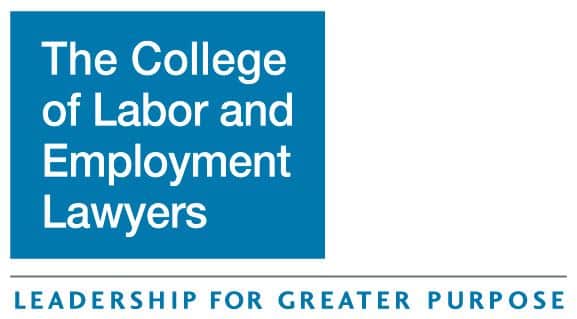What Is FTC’s Final Rule?
On April 23, 2024, the Federal Trade Commission (FTC) announced a Non-Compete Clause Rule (Final Rule) to invalidate most existing non-compete agreements. The Rule also bans all new post-employment non-compete restrictions, effective September 4, 2024. The Rule raises many questions regarding its potential impact and scope.
Employment law attorneys in Missouri and Illinois highlight that the Final Rule could affect confidentiality and non-disclosure agreements, essential in helping employers protect their trade secrets and other sensitive business information. Skilled employment contract experts provide an overview of the FTC’s Final Rule.
What Does a Non-Compete Rule Mean?
Non-compete agreement lawyers in Missouri say that under the Final Non-Compete Rule, a non-compete clause refers to:
- A term or condition of employment that prevents a worker from or penalizes them for
- Seeking or accepting work from a different employer in the United States after the conclusion of a previous employment contract that has the condition or
- Operating a business in the United States after the conclusion of the employment that includes the term or condition.
Additionally, the Rule defines workers as anyone from a company’s CEO, volunteers, interns, and externs to the mail room employees and independent contractors. However, the FTC doesn’t acknowledge “garden leave” or other provisions that continue employment as non-competes because they are not post-employment restrictions.
Notifications to Affected Workers
The FTC Final Rule requires any affected business or company to notify workers subject to the Rule by the effective date. Employers should inform the workers that any non-compete agreements they signed can’t and won’t be enforced. The notice can be issued on paper, through text, or by email.
Are There Exceptions to FTC’s Final Rule?
The Final Rule doesn’t apply to non-competes created in connection to a bona fide sale of a business entity. It also exempts non-profit businesses, federal credit unions, savings and loan institutions, air carriers, common carriers, and banks because the FTC doesn’t have jurisdiction over them. That means the Final Rule doesn’t affect workers in these industries.
It also excludes senior executives with the authority to make policy decisions controlling significant business aspects.
Besides, a non-competing clause doesn’t necessarily apply to clauses prohibiting employees from soliciting customers or other employees unless the clause is so broad that it prevents a worker from pursuing or accepting a new employment opportunity or operating a business.
Missouri non-compete agreement attorneys add that agreements that protect trade secrets and other secret information, such as non-disclosure contracts, are exempt from the Final Rule. It also doesn’t impair agreements that prohibit competitive activities during employment.
What Are Some Legal Challenges Associated with FTC’s Final Rule?
After the announcement by the FTC on the Final Rule, non-compete agreement lawyers in Missouri say that several lawsuits were filed in various states to challenge it. The arguments were that:
- The FTC had overstepped its statutory authority in issuing the Rule
- The Rule was an unconstitutional delegation of legislative power to an administrative agency
- The Final Rule has less intrusive means available to fulfill the objective of stimulating competition in the American economy.
- The FTC Act fails to define unfair competition methods but includes employer non-compete agreements as an unfair method of competition.
- The Rule is vague about how employers should move forward with employment agreements.
Opponents of the Final Rule also argue that it can’t withstand scrutiny under the central question doctrine. Under the doctrine, the Supreme Court considers the broad political or economic implications of an agency’s proposed ban or interpretation of a statute. The Court also evaluates whether the agency has apparent authority from Congress to act.
How Can Employers Navigate the Challenges of FTC’s Final Rule?
Despite the legal challenges arising from FTC’s Final Rule on non-compete agreements, employers can take some steps to prepare for its implementation. They can:
- Send notices or implement new contracts before the effective date of September 4, 2024
- Identify the workers who meet the definition of a Senior Executive who are not currently subject to non-compete clauses and determine if one is necessary. A Senior Executive, in this case, is a policy-making worker who earned at least $151,100 in the previous year. They could be the company president or chief executive.
- Avoid sending notices until the deadline is close, as the probability is high that the Rule might be enjoined and tied up in appeals soon.
- Take steps to enforce existing agreements, as the Final Rule doesn’t apply where a cause of action related to such contracts accrued before the effective date.
- Conduct an audit of existing non-competing clauses with current and former employees to ensure future potential litigation doesn’t result in a stay of the Final Rule’s effective date.
- Review existing confidentiality and non-solicitation to ensure compliance with applicable state and federal law and evaluate opportunities to narrow the restrictions preventing them from being subject to the Final Rule’s ban.
A Skilled Employment Lawyer Providing Legal Counsel on FTC’s Final Rule on Non-Competes
If you’re a business owner or an employer, you may wonder how the Final Rule on non-compete agreements will affect you. Consult experienced employment law lawyers in Missouri and Illinois for legal insights to help you prepare. The ban’s aftermath may only be apparent several months later, but it’s crucial to take proactive steps as early as now.
Riggan Law Firm has knowledgeable non-compete agreement attorneys in Missouri who can review your business agreements. Our legal team can also address your concerns about the ban on non-compete agreements to protect your business interests. Call us at 314-528-9661 to schedule a case assessment.













